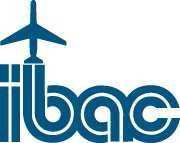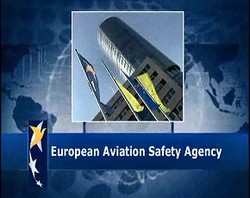Tue, Sep 01, 2009
Organization Will Be Recognized For EASA Rules Implementation
Procedures
 The International Business Aviation
Council (IBAC) and European Business Aviation Association (EBAA)
announced Friday that the IS-BAO - an International Standard for
Business Aircraft Operations - has been granted official European
recognition as an industry standard for business aircraft
operations. The recognition was achieved through a CEN Workshop
Agreement (CAW).
The International Business Aviation
Council (IBAC) and European Business Aviation Association (EBAA)
announced Friday that the IS-BAO - an International Standard for
Business Aircraft Operations - has been granted official European
recognition as an industry standard for business aircraft
operations. The recognition was achieved through a CEN Workshop
Agreement (CAW).
CEN (European Committee for Standardization) is the official
standards setting body of the European Union and CEN Workshop
Agreements are one of their principle standards products. The
IS-BAO CWA involved a 10-month open process that was managed by the
Nederlands Normalisatie-instituut (NEN) and involved business
aviation and regulatory authority representatives.
This official endorsement will facilitate recognition of the
IS-BAO in the upcoming EASA Implementing Rules. "EASA is pleased
with the efforts that IBAC and EBAA made to have the IS-BAO
recognized as a European Standard. This action will enable an
operator’s IS-BAO registration to be recognized within the
proposed EASA Implementing Rules system,” said Jules
Kneepkens, EASA Rulemaking Director.
 It is anticipated that
non-commercial operators of complex motor-powered aircraft will be
able to use their IS-BAO registration in their declaration to the
civil aviation authorities as the means they use to meet the
regulatory requirements and their associated responsibilities. It
is also anticipated that national regulatory authorities will take
into account IS-BAO registration in their regulatory oversight of
business aviation operators engaged in commercial operations.
It is anticipated that
non-commercial operators of complex motor-powered aircraft will be
able to use their IS-BAO registration in their declaration to the
civil aviation authorities as the means they use to meet the
regulatory requirements and their associated responsibilities. It
is also anticipated that national regulatory authorities will take
into account IS-BAO registration in their regulatory oversight of
business aviation operators engaged in commercial operations.
Brian Humphries, EBAA President and Chief Executive Officer
commented, “The ISBAO was developed as a professional safety
code of practice for business aviation operators and we
encourage those operators to move forward with IS-BAO
implementation so that they will be ready for the upcoming EASA
Implementing Rules”.
Because a Safety Management System (SMS) will be required of all
commercial operations and operators of complex motor-powered
aircraft engaged in noncommercial operations, the IS-BAO includes
an SMS Toolkit that can be use to develop an appropriate and
effective safety management system. The SMS Toolkit is also
available to commercial operators standalone and can likewise be
requested through IBAC and its Member Associations. “An
effective SMS enhances the safety, efficiency and effectiveness of
flight operations, - it should save you money, not cost you
money,” said Don Spruston, IBAC Director General.
More News
“While legendary World War II aircraft such as the Corsair and P-51 Mustang still were widely flown at the start of the Korean War in 1950, a new age of jets rapidly came to >[...]
Decision Altitude (DA) A specified altitude (mean sea level (MSL)) on an instrument approach procedure (ILS, GLS, vertically guided RNAV) at which the pilot must decide whether to >[...]
Aero Linx: National Aviation Safety Foundation (NASF) The National Aviation Safety Foundation is a support group whose objective is to enhance aviation safety through educational p>[...]
Also: Cal Poly Aviation Club, $$un Country, Arkansas Aviation Academy, Teamsters Local 2118 In response to two recent general aviation accidents that made national headlines, more >[...]
“The FAA is tasked with ensuring our skies are safe, and they do a great job at it, but there is something about the system that is holding up the medical process. Obviously,>[...]
 Aero-News: Quote of the Day (04.28.25)
Aero-News: Quote of the Day (04.28.25) ANN's Daily Aero-Term (04.28.25): Decision Altitude (DA)
ANN's Daily Aero-Term (04.28.25): Decision Altitude (DA) ANN's Daily Aero-Linx (04.28.25)
ANN's Daily Aero-Linx (04.28.25) Airborne-Flight Training 04.24.25: GA Refocused, Seminole/Epic, WestJet v TFWP
Airborne-Flight Training 04.24.25: GA Refocused, Seminole/Epic, WestJet v TFWP Aero-News: Quote of the Day (04.29.25)
Aero-News: Quote of the Day (04.29.25)




